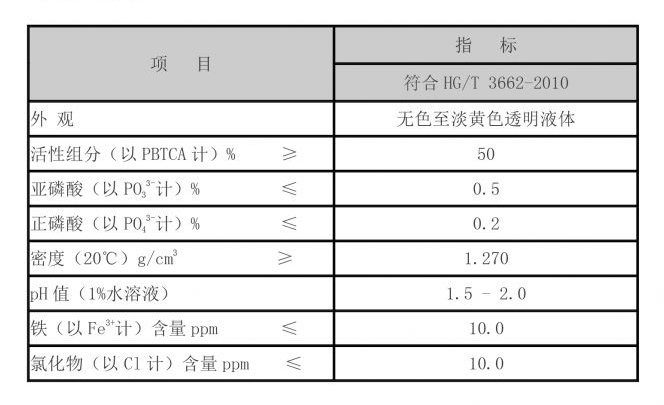Effective Solutions for Preventing Limescale Buildup in Plumbing Systems and Appliances
Understanding Limescale Inhibitors A Guide to Prevention and Maintenance
Limescale buildup is a common problem in many households, particularly in areas where water is hard. This mineral deposit, primarily composed of calcium carbonate, can accumulate in pipes, appliances, and fixtures, leading to reduced efficiency and expensive repairs. Limescale inhibitors offer a practical solution to this pervasive issue, helping homeowners maintain the efficiency of their plumbing systems and appliances while prolonging their lifespan.
What is Limescale?
Limescale is a hard, chalky substance that forms when hard water, rich in minerals like calcium and magnesium, evaporates. When water heats up—such as in kettles, boilers, or water heaters—the minerals in the water precipitate out, adhering to surfaces and creating limescale deposits. These buildups can lead to a range of problems, including reduced water flow, increased energy consumption, and even complete appliance failure if left untreated.
How Do Limescale Inhibitors Work?
Limescale inhibitors are designed to prevent the formation of these mineral deposits. While several methods exist, they typically fall into two main categories chemical inhibitors and physical devices.
Chemical Inhibitors These substances are added to the water supply or directly into appliances to inhibit the crystallization of minerals that form limescale. They work by altering the physical and chemical properties of the minerals, preventing them from adhering to surfaces. Common chemical inhibitors include phosphates, polyphosphates, and certain organic acids. While effective, they may require regular replenishment and careful monitoring to ensure that they do not cause unintended consequences for water quality.
Physical Devices Many modern solutions rely on physical methods rather than chemicals. These devices often use technologies such as electromagnetic fields or ultrasound to change the structure of the minerals in the water, preventing them from forming solid deposits. These systems can be installed directly on the water supply line and require little to no maintenance. Their effectiveness can vary, but advancements in technology have led to increased reliability and efficiency.
Advantages of Using Limescale Inhibitors
limescale inhibitor

1. Reduced Maintenance Costs By preventing limescale buildup, homeowners can significantly reduce the frequency and cost of maintenance required for plumbing systems and appliances. This means fewer repairs and replacements, leading to long-term savings.
2. Improved Efficiency Limescale can significantly decrease the efficiency of heating elements in appliances such as water heaters, leading to higher energy bills. By inhibiting limescale formation, homeowners can ensure their systems operate at optimal efficiency, reducing energy consumption.
3. Longer Lifespan of Appliances Regular limescale buildup can cause appliances to work harder, potentially leading to premature failure. By using limescale inhibitors, homeowners can extend the lifespan of their appliances, leading to additional cost savings and convenience.
4. Environmental Benefits Many physical devices for limescale inhibition do not rely on chemicals, making them an environmentally friendly option. This is increasingly important for conscientious consumers looking to reduce their ecological footprint.
Choosing the Right Limescale Inhibitor
When selecting a limescale inhibitor, it's essential to consider your specific needs and the characteristics of your water supply. For those in areas with extremely hard water, robust chemical treatments may provide immediate benefits. Conversely, homeowners seeking more sustainable solutions may prefer physical devices that require less intervention.
Additionally, it is wise to consult with plumbing professionals to assess your specific situation. They can provide recommendations tailored to your plumbing system and help you understand your options.
Conclusion
In summary, limescale inhibitors are invaluable tools for any homeowner dealing with hard water issues. By understanding the nature of limescale and the functions of various inhibitors, you can make informed decisions that protect your home, save you money, and contribute to a more sustainable living environment. Whether through chemical solutions or innovative physical devices, limescale inhibitors can significantly enhance the plumbing efficiency and longevity of your household systems, leading to a more comfortable and cost-effective home.
-
LK-319 Special Scale And Corrosion Inhibitor For Steel Plants: Advanced Solutions for Industrial Water SystemsNewsAug.22,2025
-
Flocculant Water Treatment: Essential Chemical Solutions for Purification ProcessesNewsAug.22,2025
-
Isothiazolinones: Versatile Microbial Control Agents for Industrial and Consumer ApplicationsNewsAug.22,2025
-
Scale Inhibitor: Key Solutions for Water System Scale PreventionNewsAug.22,2025
-
Organophosphonates: Versatile Scale Inhibitors for Industrial Water SystemsNewsAug.22,2025
-
Scale and Corrosion Inhibitor: Essential Chemical Solutions for Water System MaintenanceNewsAug.22,2025





